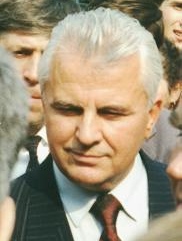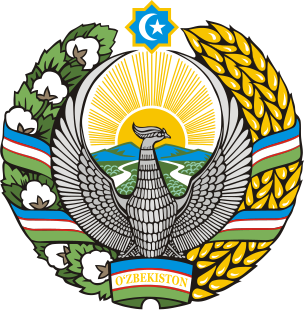
For Fatherland and Freedom/LNNK was a free market national conservative political party in Latvia. In 2011, it dissolved and merged into the National Alliance.

A seven-question referendum was held in Belarus on 24 November 1996. Four questions were put forward by President Alexander Lukashenko on changing the date of the country's independence day, amending the constitution, changing laws on the sale of land and the abolition of the death penalty. The Supreme Council put forward three questions on constitutional amendments by the Communist and Agrarian factions, local elections and the national finances.
Communist Party of Estonia (CPSU) was a political party in Estonia. The party, initially known as Communist Party of Estonia , and was formed in 1990 through a split in the original EKP. The split occurred at the 20th congress of EKP in March 1990, as a reaction against the decision of the congress to separate EKP from the Communist Party of the Soviet Union. Immediately after the independence decision of EKP, the pro-Soviet delegates left the congress venue. The convened their own rival 20th congress on March 26, 1990. EKP(NLKP platvormil) elected its own Central Committee, headed by its First Secretary Alexander Gusev, and would function as a separate party from EKP.

Presidential elections were held in Ukraine on 1 December 1991, the first direct presidential elections in the country's history. Leonid Kravchuk, the Chairman of the Verkhovna Rada and de facto acting president, ran as an independent candidate and was elected with 61.6% of the vote.

A referendum on the Act of Declaration of Independence was held in Ukraine on 1 December 1991. An overwhelming majority of 92.3% of voters approved the declaration of independence made by the Verkhovna Rada on 24 August 1991.

A referendum on self-determination for Algeria was held in France on 8 January 1961. Self-determination was approved by 75.0% of voters overall and 69.5% in Algeria. The government reported voter turnout of 92.2%. Other sources claim that two-fifths of those entitled to vote abstained.

An independence referendum was held in the Republic of Georgia on 31 March 1991. It was approved by 99.5% of voters.

The Declaration "On the Restoration of Independence of the Republic of Latvia" was adopted on 4 May 1990, by the Supreme Soviet of the Latvian SSR. The Declaration stated that, although Latvia had de facto lost its independence in 1940, when it was annexed by the Soviet Union, the country had de jure remained a sovereign country as the annexation had been unconstitutional and against the will of the people of Latvia. Therefore it resolved that the Molotov–Ribbentrop Pact and the Soviet occupation of Latvia in 1940 were illegal, and annulled the declaration on the accession of Latvia to the Soviet Union of 21 July 1940, re-instituted the Constitution of Latvia of 1922, which was thereupon partly suspended, and set a period of transition to de facto independence, which would end upon the first session of Saeima. It also ruled that during the transitional period the Constitution of the Latvian SSR and other laws would remain applicable as long as they did not contradict articles 1, 2, 3, and 6 of the Constitution of Latvia, which were reinforced by the declaration. It was provided that a committee to elaborate a new edition of the Constitution of Latvia should be created. Social, economic, cultural, and political rights were granted to citizens and residents of Latvia in accordance with international human rights. The declaration also stated that Latvia would form its relationship with the Soviet Union on the basis of the Latvian–Soviet Peace Treaty of 1920, in which the Soviet Union had recognized the independence of Latvia as inviolable "for all future time". The 4th of May is a national holiday in Latvia.

A referendum on creating the post of President of Russia was held in Russia on 17 March 1991. The referendum was held alongside a referendum of the preservation of USSR. Prior to the referendum, the Russian head of state was the Chairman of the Supreme Soviet of the Russian SFSR, elected by the Congress of People's Deputies of the Russian SFSR. With 71.4% of voters approving the proposal, the post of President of the Russian SFSR was introduced, and two months later Boris Yeltsin was elected as the first president.

Parliamentary elections were held in the Latvian SSR on 18 March 1990. It was the first free parliamentary election in Latvia since 1931 and saw 201 deputies elected to the Supreme Soviet of the Latvian SSR, 170 of them in the first round. Run-off elections were held on 25 March, 1 April and 29 April. The Popular Front of Latvia won over two-thirds of the vote. Unlike its Estonian and Lithuanian counterparts, the Latvian Communist Party did not separate from the Communist Party of the Soviet Union. Nonetheless, on 3 May 1990, the new Supreme Soviet re-elected the Communist Party member Anatolijs Gorbunovs as its chairman, effectively the leader of Latvia. He subsequently resigned from the party, and a year later the Communist Party was banned by the parliament.
Elections to the Supreme Soviet were held in the Estonian SSR on 18 March 1990, the first free parliamentary election in Estonia since 1932. A total of 105 deputies were elected, of which four were from military districts. Altogether 392 candidates ran for seats in the Soviet. The opposition pro-independence Popular Front won the plurality of the seats. The anti-independence "Joint Council of Work Collectives", representing mostly the Russian-speaking minority in Estonia, as well as the reformed communists, who favored independence but close relations with the USSR and were supported by Indrek Toome, who was running under the Free Estonia banner, both gained around 25 seats. During its first session, the new Supreme Soviet elected the former Communist Party member Arnold Rüütel as its chairman, allowing him to stay as the nominal leader of Estonia.

A referendum on the future of the Soviet Union was held on 17 March 1991. The question put to voters was

A referendum on the citizenship law was held in Latvia on 3 October 1998. The Saeima had made amendments to the law in June that increased the opportunities for naturalisation and provided the additional option of obtaining Latvian citizenship for non-citizens (nepilsoņi) and stateless persons (bezvalstnieki) born in Latvia from August 1991 onwards. Voters were asked "are you for or against the repeal of the law "Amendments in the Law of Citizenship"". A majority of 53.9% voted against repealing the law.

An independence referendum was held in the Republic of Armenia on 21 September 1991, and was to determine if voters were in favour of independence from the Soviet Union. A total of 99.5% of voters voted in favour. Turnout was 95.0%.

An independence referendum was held in the Republic of Uzbekistan on 29 December 1991, alongside presidential elections. The result was 98.3% of voters in favour, with a turnout of 94.1%.
A constitutional referendum was held in Estonia between 14 and 16 October 1933. After two new constitutional drafts proposed by Parliament had been rejected by referendums in 1932 and June 1933, a third draft proposed by the radical right-wing Movement of Veterans of the War of Independence was approved by 72.7% of voters, with a turnout of 77.9%.
An independence referendum was held in Estonia on 3 March 1991, alongside a similar referendum in Latvia the same month. It was approved by 78.4% of voters with an 82.9% turnout. Independence was restored by the Estonian Supreme Council on the night of 20 August.

A referendum on the Insurance Law was held in Latvia on 24 and 25 February 1934. The referendum was initiated by the Latvian Social Democratic Workers' Party and its supporters and asked voters whether they approved of the law "On Provision in cases of old age, disability and unemployment", more commonly known as the Insurance Law. The law would provide social protection for the elderly, disabled and unemployed. Although it was passed by a wide margin, voter turnout was below the necessary threshold and the law was not passed by the Saeima.

An independence referendum was held in the Lithuania on 9 February 1991. It was approved by 93.2% of voters. The number of voters voting "yes" was 76.5% of all registered voters, far exceeding the threshold of 50%. Independence had been declared on 11 March 1990, and was achieved in August 1991.

The Ukrainian sovereignty referendum was conducted on March 17, 1991, as part of the first and only Soviet Union referendum. Throughout the Ukrainian Soviet Socialist Republic, voters were asked two questions, with an additional question attached to the ballot in the historical region of Galicia which includes the Ukrainian provinces of Ivano-Frankivsk, Lviv, and Ternopil.
















